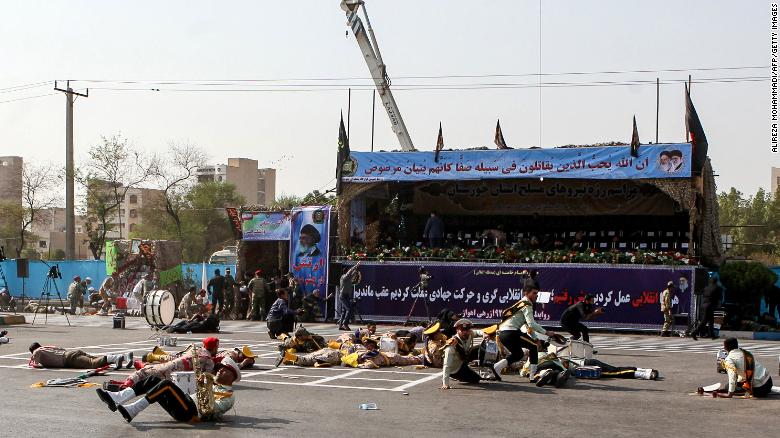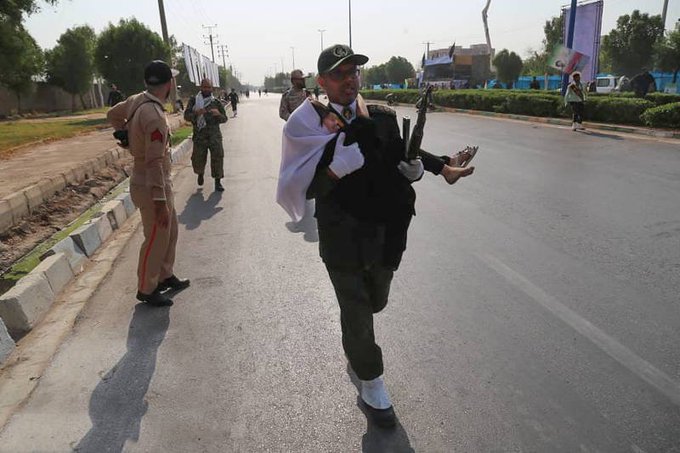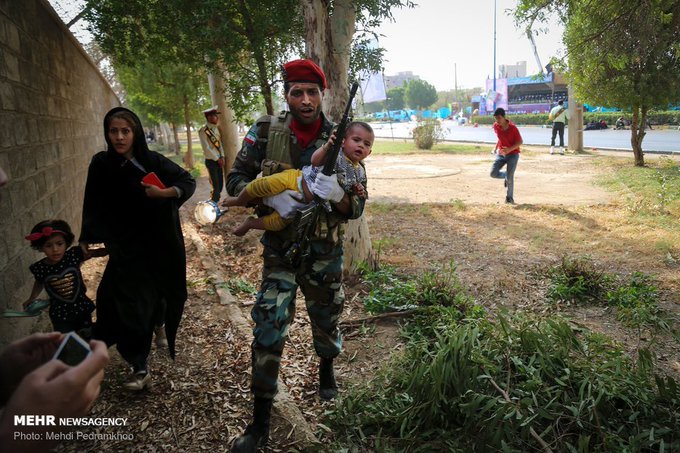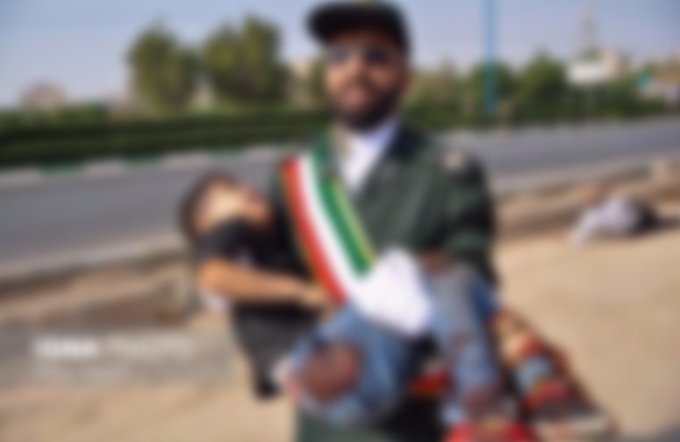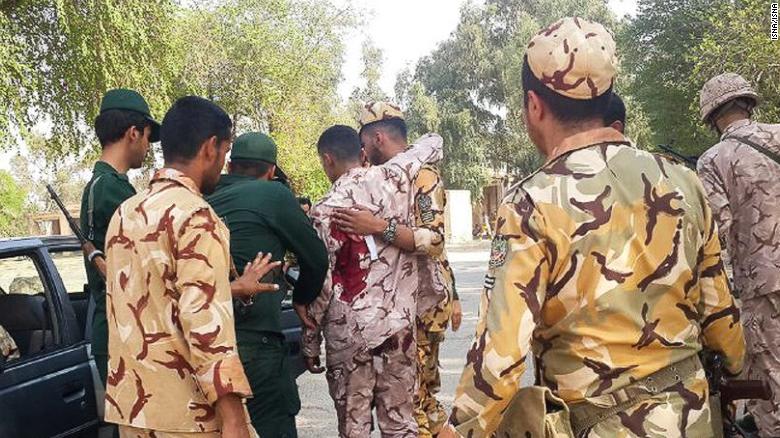
(CNN)At least 29 people were killed and 70 others wounded in an attack on a military parade in Iran's southwestern city of Ahvaz on Saturday, Iran's semi-official Fars News Agency reported, citing the deputy governor-general of Khouzestan province, Hossein Hosseinzadeh.
The dead and wounded were both military personnel and civilians including a journalist who were watching the parade, the state-run Islamic Republic News Agency (IRNA) added.
"Terrorists began shooting from a long distance while inside the park, at the armed forces as well as civilians watching the parade," Brig. Gen. Abolfazl Shekarch, a spokesman for the Iranian armed forces told Mehr, a semi-official Iranian news agency.
Three of the attackers were gunned down during clashes with the security forces and one other was arrested, news agencies reported.
The separatist group Patriotic Arab Democratic Movement in Ahwaz claimed responsibility for the attack, according to IRNA. The group is supported by "foreign antagonists," including Saudi Arabia, the agency said.
"The terrorists disguised as Islamic Revolution Guards Corps (IRGC) and Basiji (volunteer) forces opened fire to the authority and people from behind the stand during the parade," the governor of Khuzestan, Gholam-Reza Shariati, said, according to IRNA.
IRGC spokesman Ramezan Sharif said the attackers were affiliated with a terrorist group supported by Saudi Arabia, Iran's state-run Press TV said.
"The individuals who fired at the people and the armed forces during the parade are connected to the al-Ahvaziya group which is fed by Saudi Arabia," Sharif said. Saudi Arabia has yet to respond to the allegations.
Patriotic Arab Democratic Movement in Ahwaz later rejected IRNA's report that it had claimed responsibility for the attack.
"On behalf of #PADMAZ organization we reject all accusations and we insist that PADMAZ organization is a civil political movement and has nothing to do with what happen today in #IranMilitaryParade attack," the group said on unconfirmed Twitter and Facebook accounts.
The parade was part of nationwide celebrations in Iran to mark the 30th anniversary of the end of the eight-year war with Iraq that started in September 1980 and ended in August 1988.
The attack happened in a province bordering Iraq that has a large ethnic Arab community, many of them Sunni. It was a major battleground during the war that killed half a million soldiers.
Iranian Foreign Minister Mohammad Javad Zarif also blamed "a foreign regime" backed by the United States for Saturday's attack that killed at least eight troops and several civilians.
"Terrorists recruited, trained, armed & paid by a foreign regime have attacked Ahvaz," Zarif said in a tweet, adding: "Iran holds regional terror sponsors and their US masters accountable for such attacks."
Earlier, Iranian President Hassan Rouhani used the occasion of the military parades to compare US President Donald Trump to the former Iraqi dictator Saddam Hussein, Press TV reported.
Speaking at a military rally in Tehran, he said Trump will fail in the "economic and psychological war" he's launched against Iran, just as Hussein failed in his eight-year war against the Islamic Republic.
"Iran will neither abandon its defensive weapons nor will reduce its defense capabilities," Rouhani said.
"Rather it will increase its defense power day by day. The fact that they are angry at our missiles shows that these are the most influential weapons Iran has."
Syrian President Bashar al-Assad and Hezbollah, two of Iran's closest allies, issued statements condemning the attack, with Assad referencing outside involvement and Hezbollah echoing allegations of US blame.
"We are with you with all the power we have" to stand against these terrorist acts, Assad said in a cable to Rouhani extending condolences, the state-run Syrian Arab News Agency reported. "We hope that the backers, financers and proponents of terrorism will understand that this danger threatens mankind as a whole."
Hezbollah in a statement said "satanic and malignant hands are behind this terrorist action," and accused the United States and its allies of conducting the attack "directly or by proxy." The attack is intended to undermine Iran's security and stability and as "punishment for ... its rejection of American dependency politics," the statement claimed.
The Iraqi border crossing authority said Saturday that the Iranian side was temporarily closing al-Sheeb and al-Shalamcha border crossings between the two countries after the attack.

